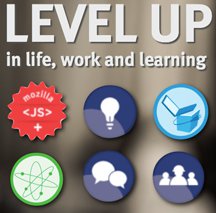
The LinkedIn Profile is now the cornerstone of your career communications. It is gradually, along with other social media sites and Google results, supplanting the resume as an introduction to you as a job candidate. For those of you who are writing your own profiles from your branded resume, I have put together 5 critical tips:
1. Your Professional Headline
- Make sure you have the title you are seeking in your Professional Headline. You can usually find the title at the top of your resume.
- If you can fit it into your allotted 120 characters, include a “reason to hire.” Your “reason to hire” is your value proposition, the value your bring to the table ($$ in revenue enabled, $$ costs cut, functionality improved, etc.)
2. Summary
- The summary is different from the profile on your resume. Keep it to no more that 3-4 short paragraphs.
- Make it less formal than your resume. Use your own “voice” to express your career brand* and your personal brand**.
- Present a quick overview of your career, particularly the last 8 years. Avoid going into detail.
- Include the top accomplishments – if possible, in terms of dollars or percentages.
- Let your personal brand shine through.
3. Skills & Expertise
- Populate your “Skills & Expertise” section with the keywords appropriate to your job target. These are often the same as the skills list that is part of your resume profile.
- Build these keywords into the Summary in a natural way as much as you are able.
4. Experience
- You want the information under the workplaces to be shorter than in your resume.
- Select your most standout contributions. You will find them standing out in your resume. Write them up using bullets.
- Include a brief snapshot of “Scope” – Number of reports, budgets managed, chief areas of accountability, etc.
5. Recommendations
- Get recommendations from people you work with or have worked with: bosses, reports, colleagues, vendors etc.
- Give them some ideas about what to write. Get these from your resume. Anything they can say that will reinforce your brand or one/many of your accomplishments will make your profile even stronger.
* Your Career Brand & **Personal Brand
- Your career brand has to do with your position (title, function, industry) and what you uniquely bring to the table (value proposition).
- Your personal brand has to do with the qualities of your personality, character, and style that are part of what make you successful.
Character Limits
Headline: 120 Chars
Company name: 100 Chars
Summary: 2000 Chars
Skills: 25 skills up to 61 Chars each
Position Title: 100 Chars
Position Description 200 Chars minimum, 2000 max
Interests: 1000 Chars







 Image courtesy of jscreationszs
Image courtesy of jscreationszs


